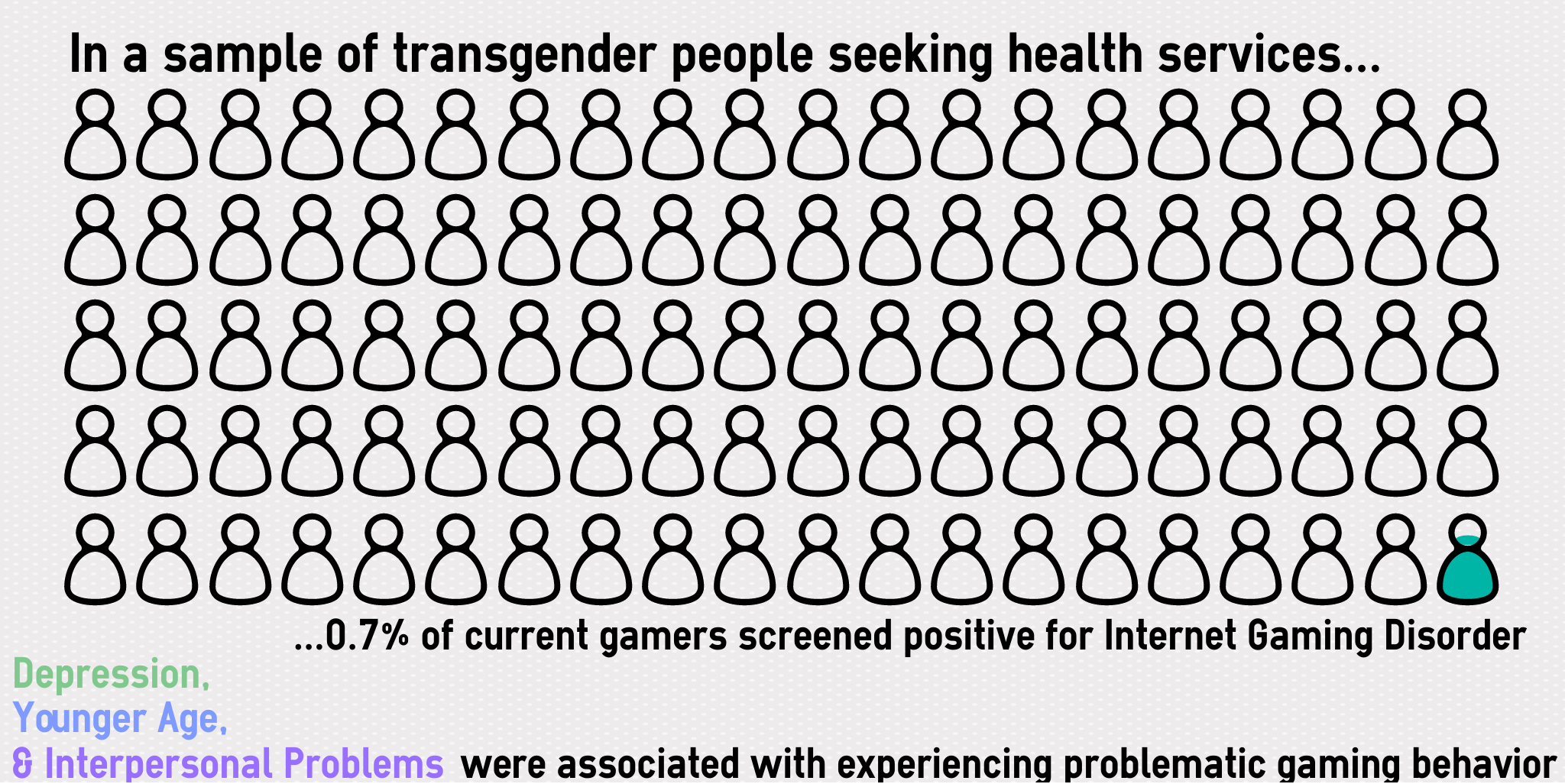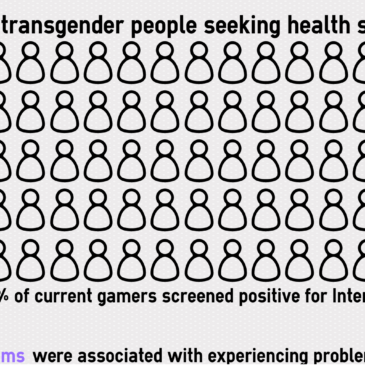Although Gambling Disorder is the only behavioral addiction currently recognized in the DSM-5, Internet Gaming Disorder (IGD) is a proposed disorder with similar criteria that has been the topic of considerable research. Anecdotal evidence suggests that for transgender individuals, especially those who face difficulty transitioning in public (i.e., changing from living as the gender that one was assigned at birth to living as the gender one subjectively experiences), online realms and video games might provide safe, non-alienating environments to live as one’s experienced gender. While this suggests that games and online environments could be helpful coping mechanisms for this community, it also raises the question of whether transgender individuals might be at an elevated risk of developing internet gaming disorder. This week, as part of our Special Series on Addiction in the LGBTQ Community, The WAGER reviews a study by Jon Arcelus and his colleagues that explores how transgender individuals in the UK engage in internet gaming.
What were the research questions?
How do transgender individuals play video games? Are there any factors that are associated with problematic gaming behavior among this community?
What did the researchers do?
A UK national transgender health service invited every person (n=257) who had been referred to their clinic over the course of a year to participate in a brief questionnaire before their appointment. A total of 245 people agreed to participate and completed the questionnaire. The questionnaire asked the participants about their internet gaming habits and the extent to which they met the proposed criteria for internet gaming disorder, their interpersonal problems, and their levels of anxiety and depression. The researchers used a multiple linear regression model to see if any variables were correlated with problematic gaming behavior.
What did they find?
Of the 245 study participants, 154 identified as current gamers, and only two people screened positive for IGD (0.7%). This rate is lower than the rates researchers have observed so far in the general population, in this new field of research. Among all participants who were current gamers, being younger, experiencing higher levels of depression, and having more interpersonal problems were all significantly correlated with experiencing more problematic gaming behavior.
 Figure. The proportion of transgender gamers who screened positive for Internet Gaming Disorder is highlighted in teal. Factors associated with problematic gaming behavior are listed. Click image to enlarge.
Figure. The proportion of transgender gamers who screened positive for Internet Gaming Disorder is highlighted in teal. Factors associated with problematic gaming behavior are listed. Click image to enlarge.
Why do these findings matter?
The relatively low prevalence of IGD found in this sample suggests that, on the whole, transgender individuals seeking healthcare services are not at elevated risk of experiencing IGD, though more research is needed to confirm this. Being young and experiencing depression was associated with experiencing more problematic gaming behavior in this study. These characteristics are also both known risk factors for experiencing Gambling Disorder. One possible explanation for these shared risk factors comes from the Syndrome Model of Addiction, which suggests that all behavioral and chemical expressions of addiction (e.g., gaming, gambling, alcohol) follow a similar developmental pathway.
Every study has limitations. What are the limitations in this study?
All of the participants in the present study had sought out care from a transgender health service that provides gender-confirming medical interventions (GCMI; e.g., cross-sex hormones, referrals for chest and genital surgeries). This means that these results might not be representative of the larger transgender community – transgender individuals who are not in contact with clinical services or who are not interested in GCMI are unlikely to have participated in this study.
For more information:
For those in the Boston area, Fenway Health offers a range of peer support groups, resources, and clinics as part of their Transgender Health Program. The Center of Excellence for Transgender Health maintains a list of organizations that serve the Transgender community in several states. Lastly, the National LGBT Health Education Center provides online educational materials for healthcare providers and other staff who wish to learn more about providing quality care to transgender people.
— Rhiannon Chou Wiley
What do you think? Please use the comment link below to provide feedback on this article.





Internetserviceproviders November 6, 2018
I really like the blog.I have shared your site with many friends and family. It is always a pleasure to read.